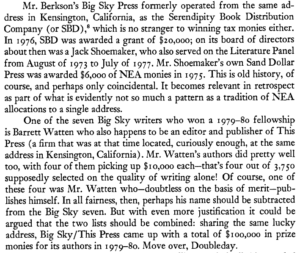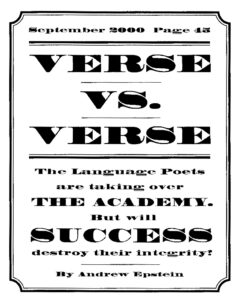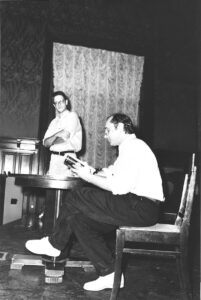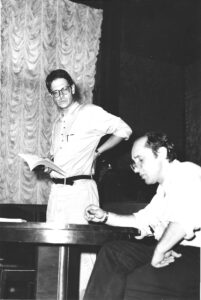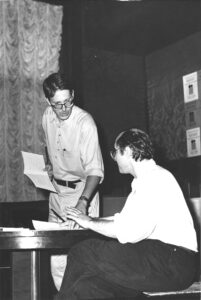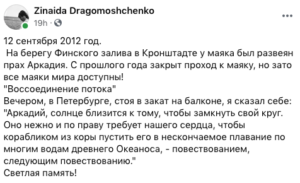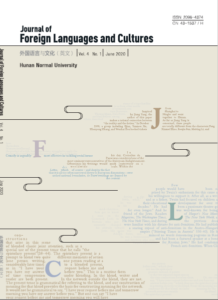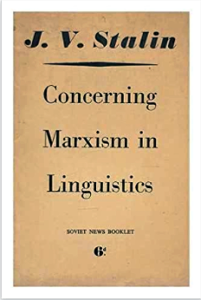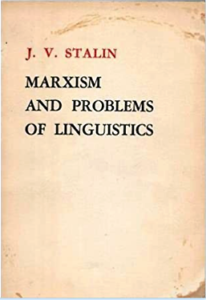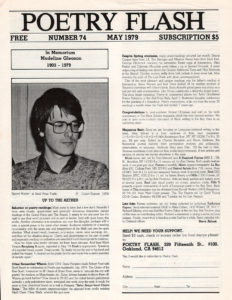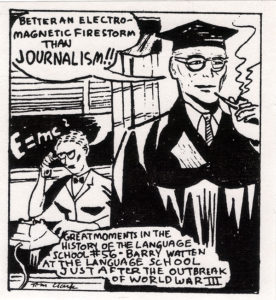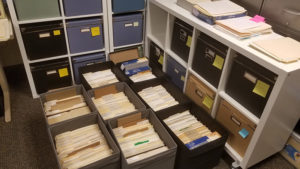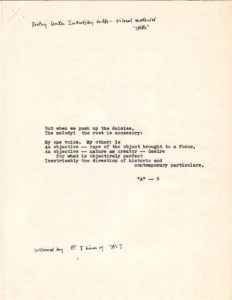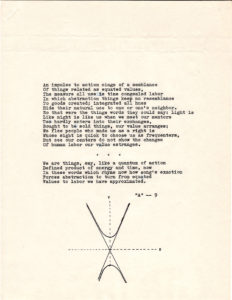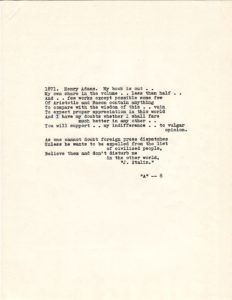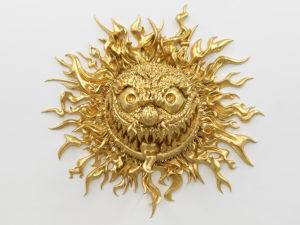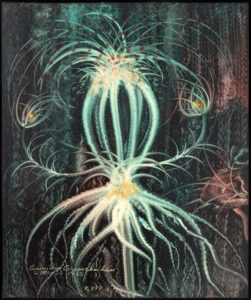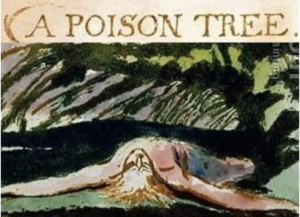Working through has never had a clearer usage than to “work through an archive,” which is now my task virtually on a daily basis. Things emerge from files and folders with breathtaking immediacy, though in actuality they have been there all along—a form of latency that is also a structure of the present. An archive, in my experience, is not a thing of the past; we are constituted in the present by our archives. This notion of archive is distinct from memory—a memory can pop up at any time, prompted by as little as a similarity in sound or image or even a proximity in neural networking. I remember walking to our black Chevrolet in a San Leandro parking lot coming out of a Five and Dime store with my mother in 1956. An archive is more logically or interpretively or thematically structured; it has a filing system that is a product of labor, vertically organizing materials in their lateral connections to form a network that begins in the archived past but extends to the present. Just so, I was organizing a set of files to be accessed under subhead 5.3.3.1 “Discussions and controversies: literary/artistic,” of which I have seen many. I open the file marked “Georgia Review” to organize/distribute its contents in three records:
5.3.3.1. controversy (1981). NEA/Georgia Review
letters following publication of “Go Down Dignified: The NEA Writing Fellowships” [see also 5.2.2.1981.1–1982.1]
MASTERS and WILK articles, w introduction, xer, 14 pp.
D’SOUZA article, sent by FRANK CONROY to MARY MACARTHUR and LYN HEJINIAN, xer w notes, 9 pp.
BW > GEORGIA REVIEW, tcb, 5 ppl.; drafts, tcb, 3 pp.; > BILL HENDERSON (PUSHCART PRESS), tcb, 1 p., 1 cp.; > JEANETTA JONES MILLER (SMALL PRESS DISTRIBUTION), tcb, 1 p.; > BILL BERKSON, 2 tcb, 3 pp.; > THOMAS M. MEYER (attorney), tcb, 1 p.; DAVID WILK, tcb, 1 p.; FRANK CONROY (NEA), tcb, 2 pp.; STANLEY W. LINDBERG (GEORGIA REVIEW), tcb, 3 pp., 2 cp.
BERKSON > GEORGIA REVIEW, tcb w BW edits, 10 pp.; > LINDBERG (GEORGIA REVIEW), 2 tlx, 5 pp.; > BW, als and tls, 2 pp.
LINDBERG (GEORGIA REVIEW) > BW, tls, 1 p.; > BERKSON, 2 tlx, 3 pp.
WILK > BW, tlx, 2 pp.
HEJINIAN > HENDERSON (PUSHCART PRESS), tcb w hm note, 1 p.
HENDERSON > BW, tls, 1 p.
JENNIFER MOYER (CCLM) > BERKSON, tlx, 1 p.
MARY MACARTHUR (NEA) > BW, tls, 1 p.
BW notes, hm, 1 p.; mailing rects, 5 pcs.
